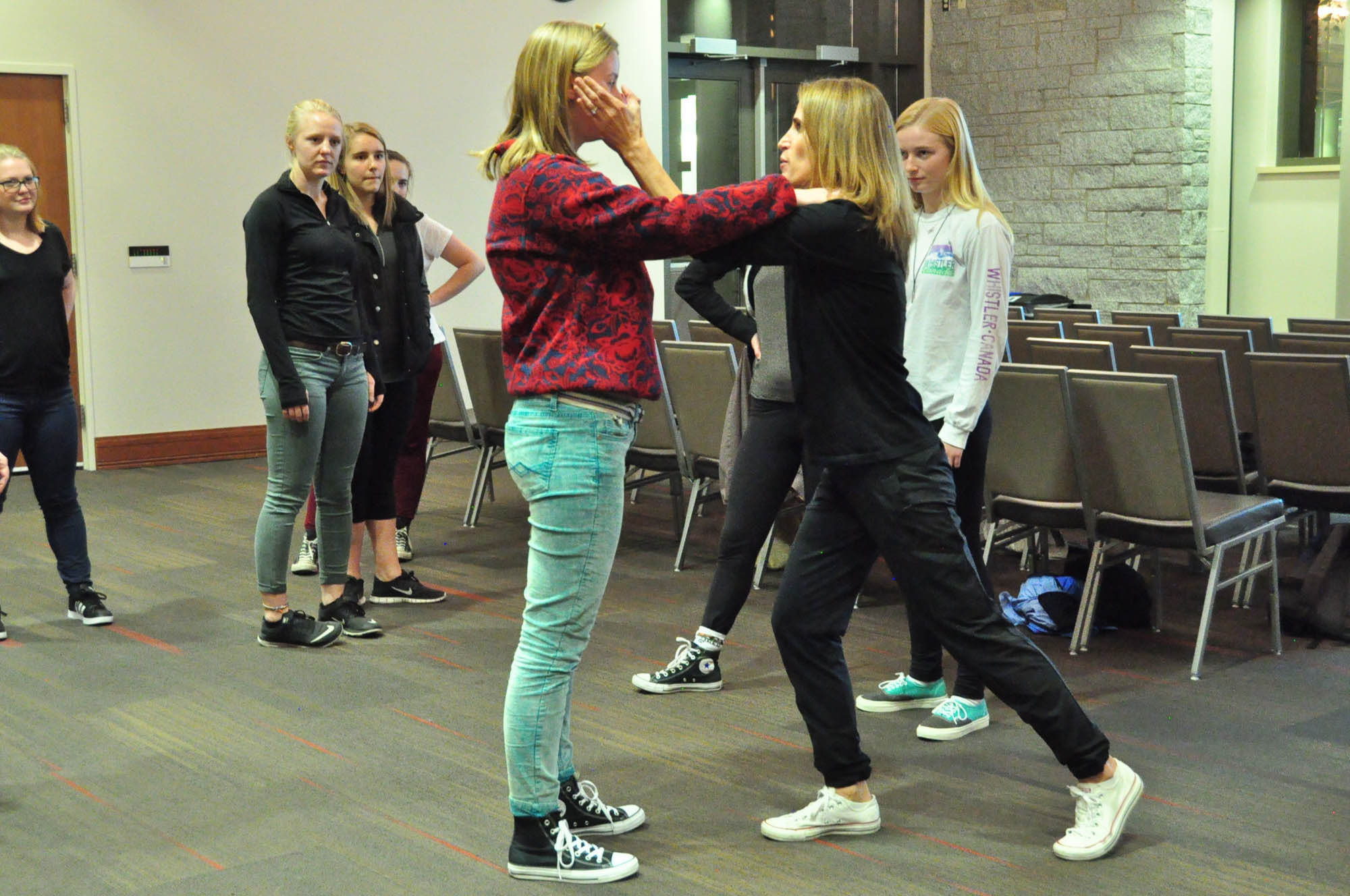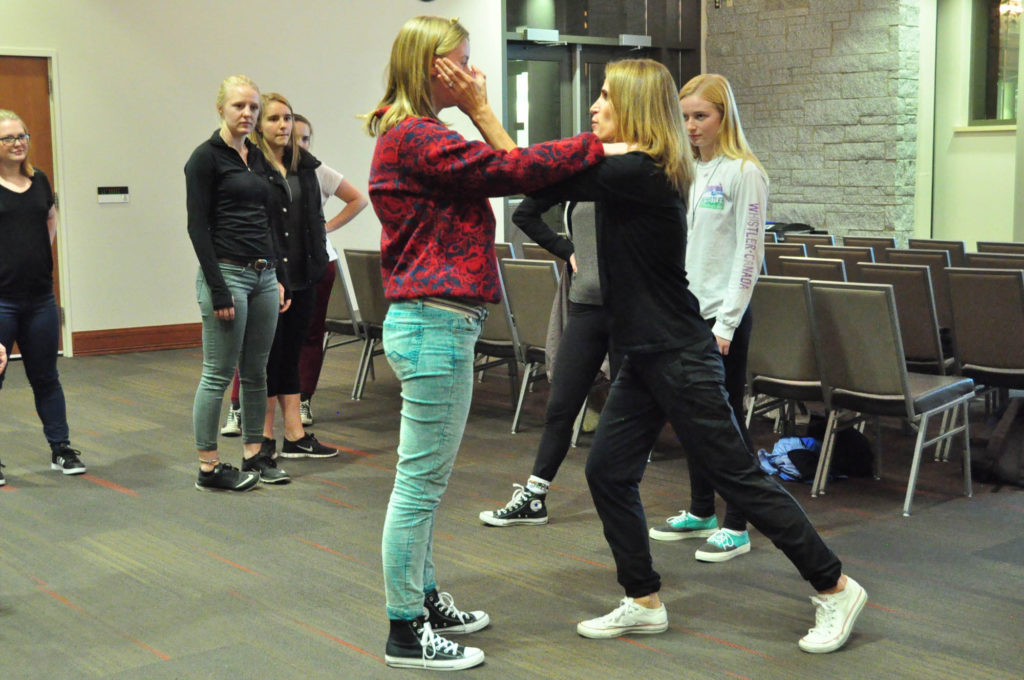Last Thursday, the Student Center echoed with powerful punches and kicks, as well as the impactful language of empowerment. Public Safety’s successful self-defense program, “Discover Your Power,” made a return for Seattle University students and members of the broader Seattle community.

Instructor, Meggan Atkins, demonstrates a strategy to escape a two-hand choke hold.
The event, which was led by two local self-defense instructors with experience teaching on school campuses, and was centered around the prevention of sexual assault. While those in attendance certainly had the opportunity to practice punches, kicks and escaping holds, the main focus of the class focused on preventative measures and avoiding conflict before it happens.
“It is a proactive program intended to prevent potential crimes,” said Joshua Halbert, a representative for Public Safety, during the presentation.
The lesson was prefaced with a discussion on sexual assault in our country and the sobering statistics that surround it. Though it is a topic that has come into focus with recent events in the presidential election, it is far from being a recent issue.
According to the World Health Organization, one out of every three women globally is affected by sexual or physical violence, with the majority of incidents occurring between the ages of 18 and 34.
“I think a lot of people just aren’t prepared and aren’t aware of the statistics and don’t know the red flags that often precede assault,” said Meggan Atkins, a member of Women Against Violence Everywhere and one of the instructors leading Discover Your Power.
With this risk present across the country, Discover your Power was created to help women escape dangerous situations and, more importantly, avoid being exposed to them. The class focused on a technique known as the “empowerment model,” the prevention of sexual assault through everyday behaviors and increased awareness of potentially dangerous situations. One of the most emphasized practices was projecting a firm and confident demeanor through speech and body language. This was recognized as the easiest and most effective way of discouraging assailants, who often look for people that appear to be withdrawn and incapable of responding.
Another major component discussed in the empowerment model was the use of intuition and trusting one’s gut feeling to know when one is in danger. The instructors presented a series of indicative behaviors to be cautious of, from verbal cues like making false promises, to more direct signs like the invasion of one’s personal space. They stressed the importance of fear as a defense mechanism and gave anecdotal evidence of survivors that credit their initial unease as the thing that saved them from being murdered.
The discussion of the empowerment model brought into conversation how these behaviors, which should be encouraged as a means of protecting oneself, are often criticized by society as “unwomanly.” The instructors pointed to the fact that societal norms of being polite and accommodating force women to act against instinct and not speak their mind, which may put them in danger.
The class acknowledged that even the best preparations will not always dissuade an attacker and had students practice against a variety of scenarios they may encounter. These exercises involved full contact against Thai pads and simulated assault conditions such as being knocked down or held in an attacker’s hold.
Though many techniques were covered in this section of the class, the instructors didn’t emphasize the memorization of self-defense techniques, but rather illustrated the amount of possibilities one has to anticipate. With the difficulty of remembering every technique for every possible encounter, the instructors said that above all else, students should remember to use what they have at their disposal.
“You don’t have to know Tae-Kwon-Do, Kung-Fu or anything,” said Veronika Zwicke, junior marketing and management major. “Use what’s available. If your hands are free, if your feet are free, use them.”
Atkins emphasized that while the class is meant to give women the ability and resources to protect themselves, it does not mean that they should be the ones held accountable for their safety. She discussed that victims of sexual assault are often the ones to shoulder the blame and that as individuals, we should not only focus on supporting our survivors, but also changing the way in which they are seen.
“The onus is never on women,” Atkins said.
This second iteration of the Discover Your Power was reported to have had an even greater audience and participation rate, prompting Public Safety to begin making plans for a third session.
Author may be reached at
[email protected]












